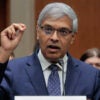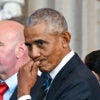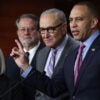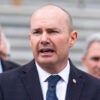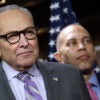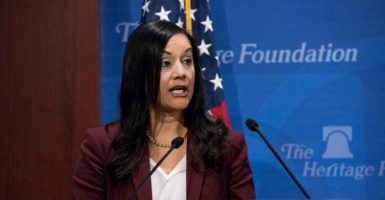Women’s economic empowerment is about so much more than women having powerful positions, says a senior government economics and business official.
“Economic success for women is about more than having a seat in the boardroom or running our own companies,” Manisha Singh, assistant secretary of state for the Bureau of Economic and Business Affairs, said Tuesday.
She made her remarks at a presentation, “Advancing Women’s Economic Empowerment,” at The Heritage Foundation in Washington.
“It’s ultimately about controlling our own fates, controlling our own futures,” Singh said. “It’s about moving societies forward for everyone’s benefit. … Statistics have shown that empowering women in the labor force is simply smart economic policy.”
Singh, the first woman to hold her position, according to her biography, was unanimously confirmed by the Senate as an assistant secretary of state in November 2017.
She said that the Women’s Global Development and Prosperity Initiative, established last year by President Donald Trump and under the leadership of senior adviser Ivanka Trump, has three main pillars that seek to advance women in the economy.
“The initiative aims to reach 50 million women by 2025, and then focus on three pillars … women prospering in the workforce, women succeeding as entrepreneurs, and women enabled [in the economy],” Singh said. “It’s the very first whole-of-government approach to advancing women’s economic empowerment.”
She added that the White House Council of Economic Advisers found that solely eliminating restraints on women’s economic participation could increase annual global gross domestic product by $7.7 trillion, or 8.3%.
“That’s quite a compelling case for the full economic involvement of over … half the world’s population,” Singh said. “To reach these numbers, we can mobilize platforms and resources to enable women to start their own companies and enterprises.”
She said she is focused on using her influence to work in both the public and private sectors to elevate economic opportunities for women.
“In my bureau, we are determined to use our best skills and assets, including partnering with the private sector to create the ultimate POWER tool,” Singh said, using an acronym for the initiative. “And by POWER, I mean Providing Opportunities for Women’s Economic Rise.”
The Bureau of Economic and Business Affairs is working with other countries to advance women’s economic opportunities, she said.
“Our first tier of the POWER initiative was to solicit proposals from embassies and consulates around the world,” Singh said. “We ask that these proposals identify specific methods or tools to better assist American women entrepreneurs access the market in their host country and vice versa.”
She said she expected to get a few proposals from the initiative, but ended up with dozens more than anticipated.
“My staff and I have combed through dozens on just our first solicitation,” Singh said, adding:
We have drawn on the full breadth … of our diplomatic networks, private-sector partnerships, and existing U.S. government programs.
These connections facilitate business development and investment among women entrepreneurs, leading to better export opportunities, better funding, and very importantly, the ability to hire more workers.
Kay C. James, president of The Heritage Foundation, delivered opening remarks before Singh’s presentation, saying that Heritage always will be dedicated to advancing economic empowerment.
“By giving more women access to that freedom, we can promote a stronger and healthier national economy, lift more families out of poverty, and create more stable and peaceful societies and fantastic trading partners,” James said. “It’s truly a win-win for everyone.”
This report was modified March 13 to quote Singh accurately in describing the POWER acronym.
